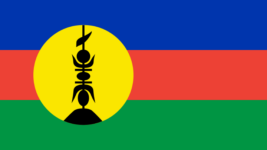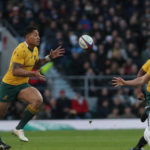Kanak Women Warn the Globe of Potential Genocide in So-Called New Caledonia

Rioting broke out mid-May 2024 in so-called New Caledonia, when the Kanak people rose up against their French oppressors in the Pacific colony, revolting against a new policy that French president Emmanuel Macron was about to roll out in the territory over 16,000 kilometres away from Paris.
The French took control of Kanaky, the country of the Kanaks, in 1853. A few French people then settled there. However, in 1864, France established a penal colony in Kanaky, with over 20,000 criminals and political prisoners being sent to the island as punishment over the next three decades.
After the sixth night of mid-May rioting that led to six dead, France sent out an extra 1,000 police and gendarmes, paramilitary police, to join the 1,000 already on hand, and by the time Macron paid a visit to the far-flung territory on 23 May, 3,000 French soldiers had been deployed to the island.
The policy that Macron was set to inflict upon the Kanaks would have extended voting rights to the thousands of French residents who’ve only migrated there over recent decades, which would have weakened the force of the Kanak vote, as prior to that it was restricted to pre-1998 residents.
Kanaky became an official French overseas territory in 1946. But after Vanuatu evicted its French overlords in the early 1980s, the movement for Kanak liberation picked up, and groups like the Kanak and Socialist National Liberation Front provided coordination towards the decolonisation process.
So, the uprising of late is considered by the Kanaks as just the latest stage in the gaining of their freedom, which commenced in the mid-1980s. And as for the calm on the streets over recent weeks, circumstances remaining like that all depends upon whether their demands are met.
Settler colonial violence
In the midst of the ongoing unrest, the World Women of March – Kanaky, put out a statement not so much focusing on any violence on the streets but more so to appeal to “international solidarity in response to the violent situation” they were currently experiencing.
The broader situation started with taking their lands in 1853, and then the occasional civilising mission carried out by the military to pacify the Kanaks with their guns, which was followed by a transmigration program to turn Kanaky into the setter colonial territory of today: New Caledonia.
The Kanak people represent 40 percent of the island’s population of 246,000 people, or 111,000 Kanak, compared to the 135,000 non-Indigenous peoples. The Kanaks have always lived there, then there’s the French people who’ve been round since penal times and of late an influx of more French.
Since 13 May 2024, “we have been subjected to an extensive operation of colonial repression, including the massive deployment of French armed forces to a country already undergoing a process of militarisation,” the Kanak feminists said, early last month and while now there’s calm, it isn’t over.
“The French colonial state is pursuing the degradation of the living conditions of the Kanak people,” the collective made quite clear.
Debunking disinformation
Kanaky-New Caledonia has been on the non-self-governing territories list since 1986. The term Kanak denotes neither ethnicity or race, and they don’t envision a future society that will be entirely Melanesian.
The 1998 Noumea Accords led to three referendums on self-determination. The accords refer to Caledonians, but the women stress that this is an erasure of the Kanak, and so there are only Kanaks and French people who use a Caledonian passport.
The first referendum in November 2018 got 43.3 percent for independence. Two years later, the second, held in October got 46.7 percent.
And the third referendum was scheduled for 2022. But instead of delaying it as the Kanak independence movement requested, to mourn for the lives of the dead, the French state went ahead and 3.5 percent of the final vote was in favour of independence, due to a mass boycott.
So, the Kanaks reject the third vote as an official referendum. And they’ve approached the International Court of Justice about it.
But Macron wants to change the law so the onset of recent settlers don’t miss out on any further votes.
Sounding alarm on genocide
“We demand a complete halt to the genocidal process as soon as possible through massive international pressure,” the Women of March – Kanaky make certain.
“Our civilisation is in danger. This is a distress signal that we are sending out to you. We are strong, yes, as our history shows, but we are also in mourning, stunned, overwhelmed, and we need all the international feminist pressure we can muster.”
To not take the considerations of the Kanaks seriously is to the benefit of the French state, especially in the current geopolitical climate, where France considers New Caledonia a forward base in the Indo Pacific and then there’s the regions abundant nickel and the discovery of oil and gas reserves.
And the statistics of Kanaky really make the point: 90 percent of the prison population is Kanak, 71 percent of poor people are Kanak, most Kanaks are considered unemployable by racists employers, and they’re more likely to suffer chronic illnesses and lack housing.
Autochtone
Another key reason that Kanak women raise in order to convey to the reader that the French state is perpetrating a genocide upon them in order to continue with New Caledonia is that “France is an accomplice of the state of Israel in the genocide of the Palestinian people”.
Palestinian Organiser Tasnim Sammak told Sydney Criminal Lawyers, a few weeks back that at this point in time of neocolonialism, the violence of the old colonialism is remerging, with such a “stark relation between the colonisers and the colonised”.
“We are already seeing France emboldened to send French troops to Kanaky to take care of the native problem,” she added.
“Colonial power is being reinforced by the Zionist regime’s aggression.”
And as the Kanak feminists note in their document, in its original, they used the French, and in the French, they use the word “autochtone” for themselves and not Indigene, as autochtone is a word meaning “Indigenous, under occupation of an administrating power”.







